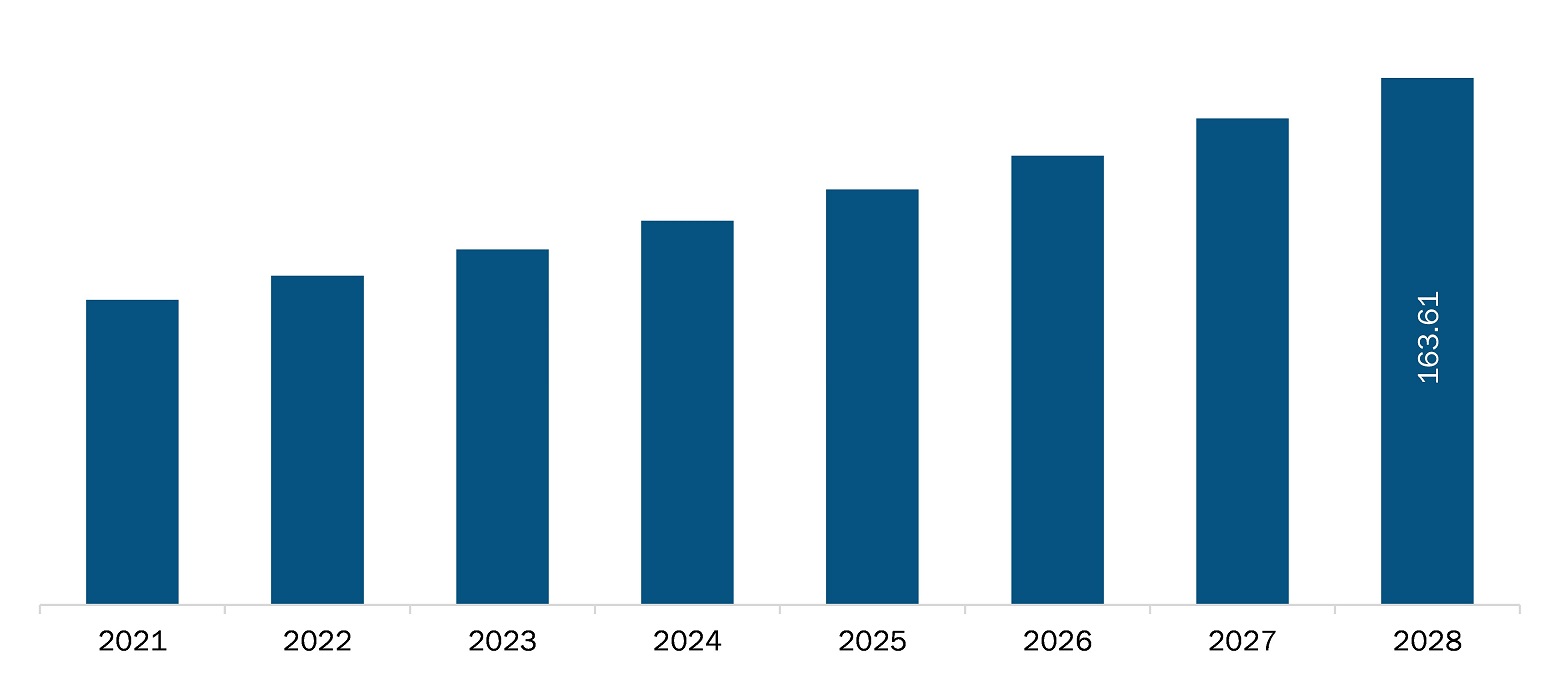The Asia Pacific artificial cornea and corneal implant market is expected to reach US$ 163.61 million by 2028 from an estimated value of US$ 94.71 million in 2021; it is likely to grow at a CAGR of 8.1% from 2021-2028.
The key factors that are driving the growth of market are rising prevalence of eye diseases that causes corneal blindness, significantly rising elderly population are factors propelling the artificial cornea and corneal implant market. However, the expensive ophthalmology surgeries and devices may hamper the growth of the Europe artificial cornea and corneal implant market in the forecast period.
According to American Academy of Ophthalmology 2021, there is a high demand for corneal donors around the world as ~10 million people need corneal transplants. However, the number of transplant recipients greatly exceeds the availability of corneal tissues. In densely populated counties, such as India, patients with blind cornea wait for corneal transplants for more than 6 months. According to National Center for Biotechnology Information, ~6.8 million people across the country have poor vision in one eye, and ~1 million people have both their eyes with poor vision, caused by corneal diseases. In 2019, corneal blindness affected ~120,000 people India, and by the end of 2020, it is estimated to have 10.6 million cases of unilateral corneal blindness. The country needs ~250,000 corneas each year; however, the total number of corneas donated each year is ~25,000. Thus, the shortage of corneal donors, in contrast with the high prevalence of corneal blindness, is expected to provide high growth opportunities for corneal implant manufacturers. A team of researchers from the Pohang University of Science and Technology, and the Kyungpook National University School of Medicine in South Korea collaborated to 3D print artificial corneas using tissue-based bio-inks; the research has been published in "Biofabrication", in 2018. Since the 3D printed corneas are made from corneal tissue materials, they are biocompatible, and the corneal microenvironment is reproduced through 3D cell printing technology to make them transparent, like human cornea. The 3D printed artificial corneas also help overcome the complications related to synthetic cornea implanted in patients with cataracts and other ocular complications. Furthermore, one of the key advantages of 3D printing is that collagen can be deposited in layers, which allows for the simulation of the composition of collagen fibers in the natural corneal matrix. Thus, upon their successful commercialization for clinical usage, the 3D printed biocorneas are likely to emerge as a significant trend in the artificial cornea and corneal implant market.
Corneal transplantation suffered an early setback due to a reduction in elective procedures as resources were diverted to handling COVID-19-infected patients. The possibility of COVID-19 ocular involvement has consequences for corneal donation as well. The risk of transmitting the virus via corneal transplantation to recipients led to its suspension until adequate polymerase chain reaction (PCR) testing could be performed to exclude donor infection in some centers. Furthermore, the corneal donor supply chain has been impacted by worldwide travel restrictions. This is especially important in many regions of Asia, where demand for eye transplants is primarily dependent on imported donors due to a lack of local eye banks. This could spur research into lamellar keratoplasty, the development of artificial corneas, or cell treatment to improve donor utility. In the post-pandemic environment, evaluation of corneal disorders may see a paradigm change toward telemedicine or artificial intelligence to satisfy these unmet requirements across Asia.

- This FREE sample will include data analysis, ranging from market trends to estimates and forecasts.
ASIA PACIFIC ARTIFICIAL CORNEA AND CORNEAL IMPLANT MARKET SEGMENTATION
By Type
- Human Cornea
- Artificial Cornea
By Transplant Type
- Penetrating Keratoplasty
- Endothelial Keratoplasty
- Others
By Disease Indication
- Fuchs’ Dystrophy
- Keratoconus
- Fungal Keratitis
- Others
By End User
- Hospitals
- Specialty Clinics and ASCs
- Others
By Country
- China
- Japan
- India
- Australia
- Southeast Asia
- South Korea
- Rest of Asia Pacific
Company Profiles
- AJL OPHTHALMIC S.A
- Aurolab
- CORNEA BIOSCIENCES, INC
- EyeYon Medical
- Florida Lions Eye Bank
Asia Pacific Artificial Cornea and Corneal Implant Report Scope
| Report Attribute | Details |
|---|---|
| Market size in 2021 | US$ 94.71 Million |
| Market Size by 2028 | US$ 163.61 Million |
| CAGR (2021 - 2028) | 8.1% |
| Historical Data | 2019-2020 |
| Forecast period | 2022-2028 |
| Segments Covered |
By Type
|
| Regions and Countries Covered |
Asia-Pacific
|
| Market leaders and key company profiles |
|
- Historical Analysis (2 Years), Base Year, Forecast (7 Years) with CAGR
- PEST and SWOT Analysis
- Market Size Value / Volume - Regional, Country
- Industry and Competitive Landscape
- Excel Dataset
Recent Reports
Testimonials
Reason to Buy
- Informed Decision-Making
- Understanding Market Dynamics
- Competitive Analysis
- Identifying Emerging Markets
- Customer Insights
- Market Forecasts
- Risk Mitigation
- Boosting Operational Efficiency
- Strategic Planning
- Investment Justification
- Tracking Industry Innovations
- Aligning with Regulatory Trends






















 Get Free Sample For
Get Free Sample For